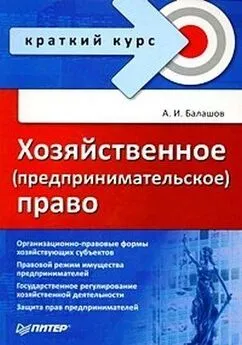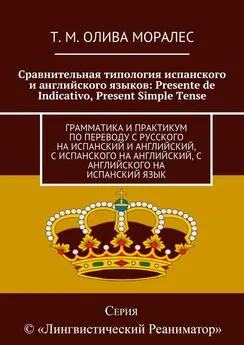Станислав Коростелев - Английский язык для юристов. Предпринимательское право
- Название:Английский язык для юристов. Предпринимательское право
- Автор:
- Жанр:
- Издательство:046ebc0b-b024-102a-94d5-07de47c81719
- Год:2006
- Город:СПб
- ISBN:5-469-01382-0
- Рейтинг:
- Избранное:Добавить в избранное
-
Отзывы:
-
Ваша оценка:
Станислав Коростелев - Английский язык для юристов. Предпринимательское право краткое содержание
Настоящее учебное пособие предназначено для овладения лексикой в области предпринимательского и коммерческого права студентами лингвистических вузов и студентами гражданско-правовой специализации юридических вузов.
Книга призвана дать преподавателям и студентам специальный языковой и профессиональный материал, ориентированный на повышение качества профессиональной подготовки в области правовой лингвистики и международного бизнеса.
Английский язык для юристов. Предпринимательское право - читать онлайн бесплатно ознакомительный отрывок
Интервал:
Закладка:
Individuals who buy something from a minor have voidable ownership rights because the minor has the right to disaffirm the contract. The law permits a person having voidable ownership rights to transfer valid ownership rights to an innocent third-party purchaser of those goods. Thus, disaffirmance by a minor will not require the innocent purchaser to return the goods (real estate is an exception).
Persons deprived of the mental ability to comprehend and understand contractual obligations have the right to disaffirm their contracts.
A contract made by a person who is mentally infirm or who suffers from mental illness may be valid, if the person's infirmity or illness is not severe enough to rob that person of the ability to understand the nature, purpose, and effect of that contract. Thus, mental retardation or mental illness does not necessarily reduce a person's ability to enter into contracts. The legal question to be answered is whether the mental problem is so serious that the person did not understand the nature of the contract. If that is the case, the mentally infirm or mentally ill person may disaffirm any contract except one for necessaries. The person judged incompetent must return all consideration received, if he or she still has it.
Persons declared to be insane by competent legal authority are denied the right to enter contracts. Any contractual relationship with others results in a void agreement. In most jurisdictions, persons who knowingly take advantage of someone who is declared insane are subject to criminal indictment and prosecution.
Contracts agreed to by persons under the influence of alcohol or drugs may be voidable. Incompetence related to either alcohol or drug use must be of such a degree that a contracting party would have lost the ability to comprehend or to be aware of obligations being accepted under the contract. Disaffirmance in such cases requires the return to the other party of all consideration that had been received. However, such a return may be refused if evidence indicates that one party took advantage of the other's drunken or weakened condition.
Exercise 1. Comprehension questions:
1. When a minor disaffirms a contract what is he entitled to?
2. Give definition of minority and majority.
3. In what cases are the minors liable on their contracts?
4. What privilege do the minors have?
5. Explain what necessaries are.
6. When are the parents liable for contracts executed by minors?
7. When may people ratify contracts made during minority?
8. What rights do people who suffer from mental illnesses have when they make a contract?
Exercise 2. Find in the text English equivalents to the following:
Отказываться; утверждение; правоспособность; дееспособность; отказывать в подтверждении; эмансипировать; ратификация; опровержимая презумпция; последующее одобрение.
Exercise 3. Consult recommended dictionaries and give words or phrases to the following definitions:
Правоспособность; дееспособность; имущественная ответственность гражданина; недопустимость лишения и ограничения правоспособности и дееспособности; опека; попечительство; распоряжение имуществом подопечного; юридическое лицо.
Exercise 4. Be ready to talk on one of the following topics:
1. Describe the general legal presumptions with regard to a party's capacity to create a contract.
2. Explain why the law allows minors to void contracts for anything other than necessaries.
3. Distinguish between emancipation and abandonment and explain the meaning of each concept.
4. Assess the potential liability of minors who lie about their age when entering into a contract.
5. Contrast the legal liability of minors in contracts involving necessaries with their legal liability in contracts that do not involve necessaries.
6. Identify types of contracts that the law may except from the general rule that contracts by minors are voidable by the minor.
7. Contrast the contractual capacity of persons declared legally insane with that of those not declared legally insane.
8. Discuss the contractual capacity of drugged or intoxicated persons.
Exercise 5. Make up your own dialog on the case: In Jefferson Credit Corp. v. Marcano, a buyer who had «at best a sketchy knowledge of English language» signed an automobile installment sales contract which waived the implied warranties of merchantability and fitness for a particular purpose. The court found «it can be stated with a fair degree of certainty» that the buyer neither knew nor understood that he had made such waivers, even though they were printed in large black type.
Thus, the assumption of consumer ignorance may, among other things, be based upon his proven inability to read the language, in which the contract was printed, his proven lack of education or upon his status as a poor person. Seller's guile often takes the form of a clause difficult to understand and placed in fine print on the rear of the contract. However, it may also take the form of fraud, sharp practice, high-pressure salesmanship, and so on.
Unit 6
Consideration
Встречное предоставление
В силу обязательств одно лицо (должник) обязано совершить в пользу другого лица (кредитора) определенное действие, либо воздержаться от определенного действия, как-то: передать имущество, выполнить работу, уплатить деньги и т. п., либо воздержаться от определенного действия, а кредитор имеет право требовать от должника исполнения его обязанности. Обязательства должны исполняться надлежащим образом в соответствии с условиями обязательства и требованиями закона, либо обычаев делового оборота или иными обычно предъявляемыми требованиями (главы 21–26 ГК РФ). Договор предполагается возмездным, то есть сторона должна получить плату или иное встречное представление за исполнение своих обязанностей. Если же одна сторона договора обязуется предоставить что-либо другой стороне без получения платы или иного встречного представления, такой договор признается безвозмездным (глава 27 ГК РФ).
– accord – согласие; соглашение
– consideration – встречное удовлетворение, предоставление; компенсация
– detriment – ущерб, вред; невыгода
– disputed amount – сумма иска, исковая сумма
– forbearance – воздержание от действия; отказ от принятия мер
– illusory promise – нереальное обещание
– option – выбор; право выбора; опцион; дискреционное право
– past consideration – предшествующее встречное удовлетворение
– pledgee – залогодержатель
– preexisting duties – ранее существовавшие обязательства
– promissory estoppel – лишение права возражения на основании данного обещания
– release – отказ от права; передача права другому лицу; документ об отказе от права или о передаче права
– satisfaction – исполнение
– statutes of limitations – закон об исковой давности
– unconscionable – недобросовестный
– undisputed amount – неоспоримое, бесспорное количество
The mutual promise to exchange things of value is called consideration. It binds the parties together. If an agreement has no consideration, it is not a binding contract.
Consideration consists of a mutual exchange of benefits and sacrifices between contracting parties. In the exchange, what is a benefit to the offeree is, at the same time, a sacrifice to the offerer. Likewise, the benefit bargained for by the offerer results in a sacrifice by the offeree. The legal term used for this sacrifice is detriment. A detriment is any of the following: doing (or promising to do) something that one has a legal right not to do; giving up (or promising to give up) something that one has a legal right to keep; and refraining from doing (or promising not to do) something that one half a legal right to do. This last type of detriment is known as forbearance. Consideration has three characteristics:
• promises made during bargaining are dependent on the consideration to be received;
• the consideration must involve something of value; and
• the benefits and detriments promised must be legal. Unless an agreement has been bargained for, the law will not enforce it. An agreement involves a bargained-for exchange when a promise is made in exchange for another promise, a promise is made in exchange for an act, or a promise is made for a forbearance of an act. The concept of bargaining means that each party is hurt in some way if the other party fails to keep a promise. Conversely, each party gains something when the promises are kept and the exchange is made.
It is important only that the parties freely agree on the value and the price. There is, however, an exception to this rule. Courts, at times, give a party relief when the consideration is so outrageous that it shocks the conscience of the public. A court may refuse to enforce a contract or any clause of that contract if it is considered unconscionable, that is, ridiculously inadequate, for example, when bargaining power between the two parties is greatly unequal.
Consideration requires that the benefits and sacrifices promised between the parties be legal. Absence of legality renders the consideration invalid. Thus, a party cannot agree to do or promise to do something that he or she does not have the legal right to do.
Most often, consideration takes the form of money, property, services, or benefits and sacrifices.
A promise not to sue, when there is the right to sue, is enforceable when supported by consideration. Promising not to sue is a forbearance. A promise not to sue, in exchange for an amount of money, is a customary way to settle a pending lawsuit. Settlements of this type are often preferred to expensive and time-consuming litigation.
Acceptance of an agreement not to sue, supported by consideration, terminates one's right to continue any lawsuit, at present or in the future, on the grounds described in the agreement. A promise not to sue is commonly called a release.
Читать дальшеИнтервал:
Закладка:










